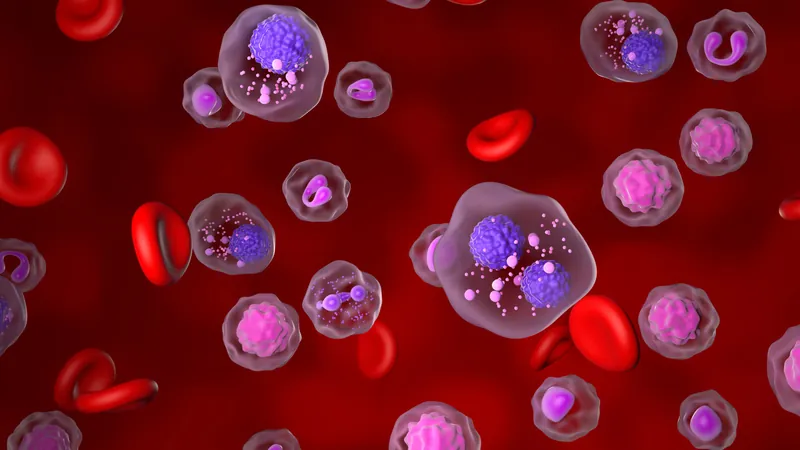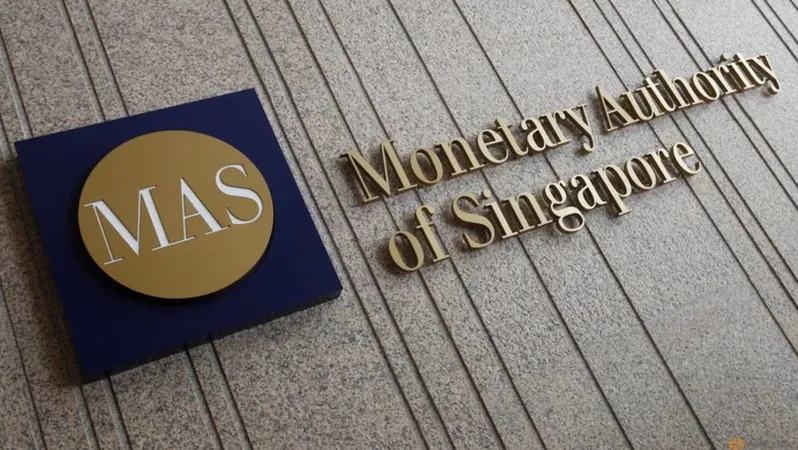
Scandal in Academia: Former University Head Under Fire for Fraud and Image Manipulations
2025-04-04
Author: Jia
A significant controversy is unfolding in Italy involving Salvatore Cuzzocrea, the former rector of the University of Messina. Cuzzocrea is embroiled in criminal investigations for embezzlement and for allegedly manipulating university contracts. This scandal escalates further as he has faced a staggering 18 retractions of his published papers over the last year alone due to serious ethical breaches, including image alterations and duplications.
Despite the accusations and the wave of retractions, Cuzzocrea maintains his innocence and disputes the validity of the retraction decisions, claiming that the retractions were made “without clear communication” and asserting that all papers that have faced scrutiny were fixable. “I published over 900 papers, and only a fraction—with just around 70 with some issues, and eight or nine retracted,” he stated defiantly.
However, the reality of the situation appears grimmer. Over 179 of his papers have been called into question on the peer review platform PubPeer, where issues such as image overlap and duplication have been highlighted by various critics. Worryingly, some of these issues trace back decades, revealing potential systemic problems in the oversight of published research.
For instance, one particularly egregious example dates back to a 1999 article in the Journal of Pineal Research, where a supposedly unique figure was found to have been reused in another study published the same year in the European Journal of Pharmacology. Following this revelation, the Journal of Pineal Research issued a retraction notice stating that the data provided was "insufficient" to address the concerns raised about the authenticity and integrity of the findings.
Other papers have raised red flags for splicing images and reusing data from separate studies without proper disclosure. Despite the gravity of these findings, Cuzzocrea argues that detecting such duplications was challenging in earlier years due to the lack of advanced technology that researchers now rely on for image analysis.
Notably, an investigation led by the Italian Prosecutor’s Office is examining over 2 million euros in alleged embezzlement tied to Cuzzocrea, amounting to reported reimbursements of around 40,000 euros each month. The investigation arose from an audit instigated by another Italian university leader.
As of October 2023, Cuzzocrea resigned from his esteemed position as rector amidst the uproar, explaining that it was a self-defense move against what he described as a "newspaper attack." He insists that his resignation was not an admission of guilt but rather a gesture of respect towards the institution he once led. He continues to serve as a pharmacology professor and as an advisor to the Italian Ministry of University and Research.
Cuzzocrea's record also includes a listing in the Top Italian Scientists Journal, where he is recognized for his high h-index, a bibliometric indicator of research output. While he remains a key figure in his field, the scandal has called into question the integrity of his extensive body of research.
This unfolding drama raises essential questions about accountability and oversight in academic publishing, illustrating the need for stricter adherence to ethical standards in research. The academic community—and aspiring researchers—should watch closely as this case develops, as it may set significant precedents for the future of scientific integrity.





 Brasil (PT)
Brasil (PT)
 Canada (EN)
Canada (EN)
 Chile (ES)
Chile (ES)
 Česko (CS)
Česko (CS)
 대한민국 (KO)
대한민국 (KO)
 España (ES)
España (ES)
 France (FR)
France (FR)
 Hong Kong (EN)
Hong Kong (EN)
 Italia (IT)
Italia (IT)
 日本 (JA)
日本 (JA)
 Magyarország (HU)
Magyarország (HU)
 Norge (NO)
Norge (NO)
 Polska (PL)
Polska (PL)
 Schweiz (DE)
Schweiz (DE)
 Singapore (EN)
Singapore (EN)
 Sverige (SV)
Sverige (SV)
 Suomi (FI)
Suomi (FI)
 Türkiye (TR)
Türkiye (TR)
 الإمارات العربية المتحدة (AR)
الإمارات العربية المتحدة (AR)